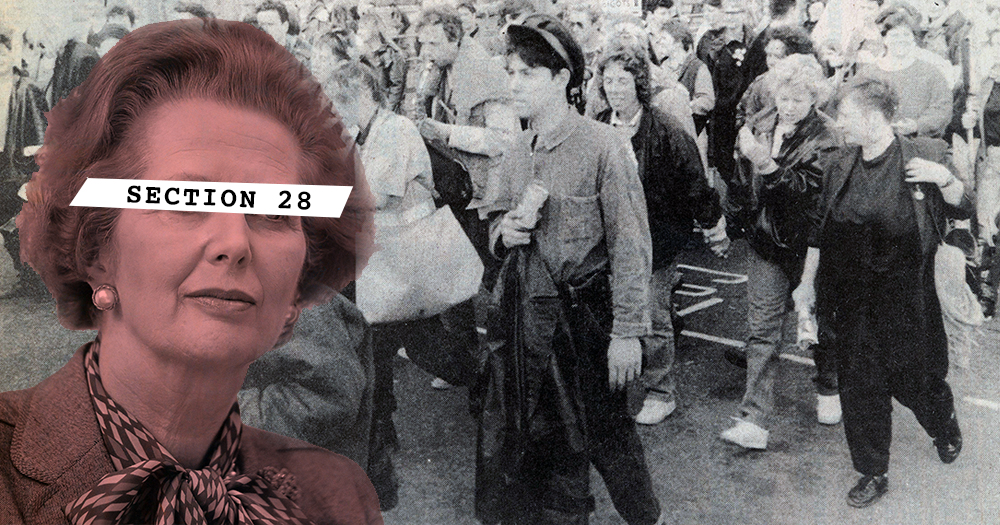Love or loathe her few can dispute Margaret Thatcher remains one of the most significant politicians of 20th century Britain. When she was elected Prime Minister in 1979 she promised a radical program to revitalise the economy. Soon afterwards she began wielding her sledgehammer to try to smash the working class, their unions, the welfare state and the gay community with her infamous Section 28.
Today marks the 30th anniversary since one of her most controversial pieces of legislation came into force. Section 28, sometimes referred to as clause 28, was an amendment to the local government act which forbade any promotion of the so-called gay lifestyle. It remains a precursor to Russia’s infamous gay propaganda law which was brought in in 2013.
The 1988 amendment said that a local authority “shall not intentionally promote homosexuality or publish material with the intention of promoting homosexuality” or “promote the teaching in any maintained school of the acceptability of homosexuality as a pretended family relationship”.
It did not create a criminal offence so no prosecutions were ever brought under it. However, the significance of the act cannot be overstated given the chilling effect it had on teachers and education professionals who shied away from confronting gay issues for fear of violating the act. The act also had the effect of closing a myriad of LGBT+ support groups that operated under the auspices of the local authorities as council chiefs feared violating the act.
The act emerged within a context of widespread homophobia and cultural confrontations which characterised the Thatcher era. It could not have come at a worst time for the community who were facing their darkest days as the AIDS epidemic reached its devastating apogee leaving them critically reliant on state services.
The introduction of Section 28 did serve as a catalyst to propel the British gay rights movement to resist Thatcher. The resulting protests saw the rise of now groups like Stonewall and Outrage which have gone on to become major organisations within the gay community.
The provision was eventually repealed by The Blair government in 2000 following pressure from civil society groups.
© 2018 GCN (Gay Community News). All rights reserved.


comments. Please sign in to comment.